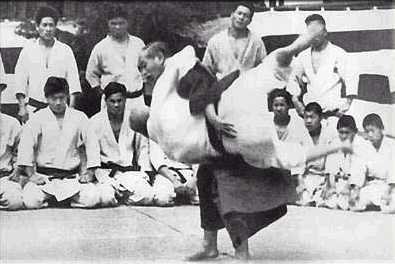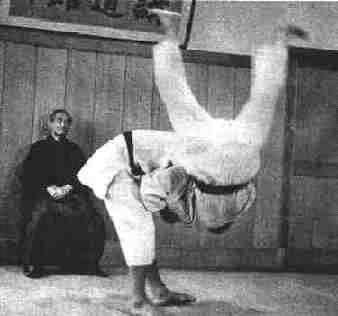Judo
Master Jigoro Kano's Supple Way

Though throwing and tossing combatants
may not seem intuitively gentle, Master Kano's martial art is more
humane than its samurai predecessor, Jujitsu. Professor Jigoro Kano himself
studied at many jujitsu schools. Kano wanted to make the most efficient
use of his mental and physical prowess. To that end, he excluded certain
techniques which he deemed ineffective. The idea of "yawara," put simply, permits a smaller person to utilize a larger
person's energy and thus drive him or her off balance. Many judo throws are preceded by attempts at off balancing and are
made much more powerful when the attacker's force is used against him.
Judo is an art that permits its practitioner to conserve strength. Judo makes good use of physical truths that permit technique to overcome mere
brute strength and power. Judo teaches balance. Judo is well suited to modern society in that it allows for
sport competition and places less emphasis on the more permanently injurious arm locks, chokes, and pressure point strikes of
Jujitsu. Of course, jujitsu's roots are all too apparent in the Judo syllabus and are readily incorporated into any
technique.
The Purple Dragon School of Self Defense's Judo syllabus classifies waza (technique) according to the part
of the body that executes a throw. Students thus learn hand, foot, hip, sacrifice
throws, and eventually progress to the study of pins, choke holds, and arm-bars
/ wraps. Sparring is encouraged, and students
learn the value of energy conservation
and stamina during successive one minute Judo matches conducted in the dojo.
